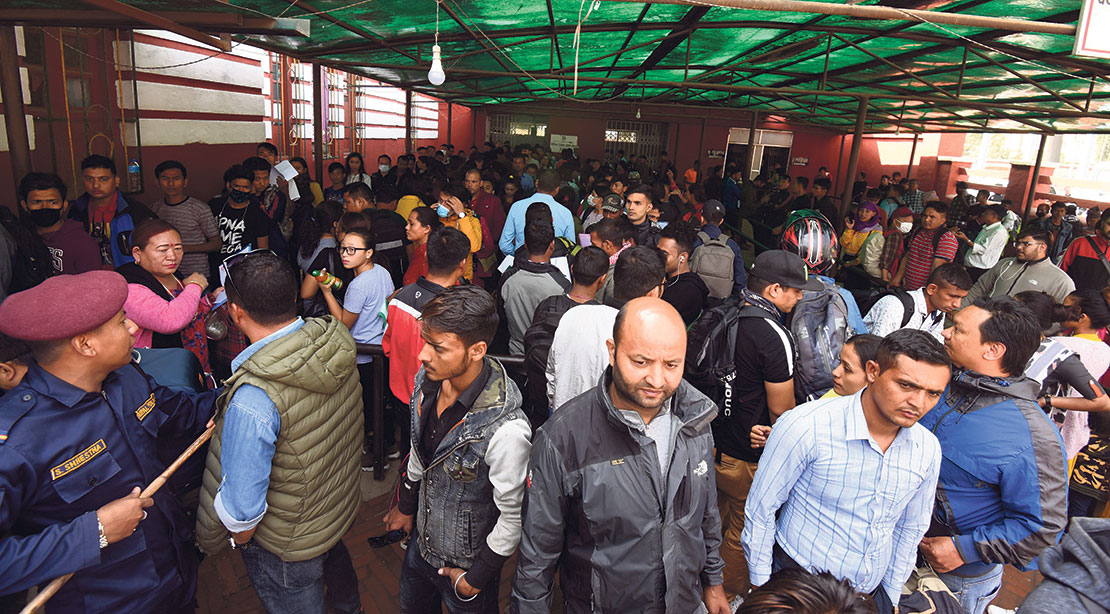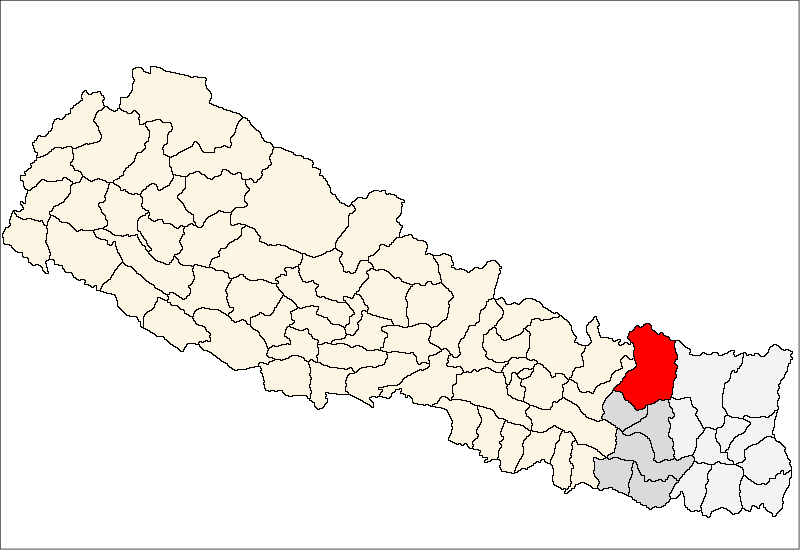
OR
Editorial

The decision of the Department of Passports (DoP) to halt the distribution of passports until further notice has hogged the headlines. Ordinary people have taken to social media to criticize the DoP for its alleged inefficiency and the government as a whole for failing to provide even essential services to the people. Ironically, the halt in the distribution of passports came days after the first cabinet meeting led by Prime Minister Pushpa Kamal Dahal decided to improve public service delivery from various offices as a part of the new government’s efforts to ensure good governance in the country. So much so that Prime Minister Dahal himself announced in public to make the delivery of passports, driving licenses and other essential government services in a hassle-free manner to the general public. Apparently, the Office of Prime Minister and Council of Minister (OPMCM) is concerned over the disruption in the distribution of passports. A team of the OPMCM visited the DoP and took stock of the situation there on Wednesday. The team concluded that a technical snag in the system was experienced as the company concerned did not resolve the problem on time. The team has directed all the bodies concerned to resolve the problem at the earliest to make sure that passport distribution resumes as usual. The concerns shown by the OPMCM is understandable. But this alone is less likely to address the perennial problem seen in the distribution of passports.
Of course, the DoP has made necessary arrangements to distribute passports through the District Administration Offices (DAOs). It takes 15 days on an average for the service-seekers to receive passports after submitting applications and the biometric details at the DAOs. The serpentine queue that is routinely seen outside the DoP in Tripureshwor is partly because the time duration it takes to receive a passport is relatively longer, especially for those who have come home from abroad on a short holiday. Service-seekers complain that they are forced to come to Kathmandu as it sometimes takes more than two weeks to receive a passport from the DAO in some districts. The tendency among people to apply for passports only when it is urgent is also partly to blame for this situation. Any initiatives on the part of the DoP to cut short the time that takes to deliver passports to the concerned DAO in a reliable manner could greatly reduce the crowd otherwise seen at the DoP every other day. In fact, the DoP is supposed to issue passports from its office in Tripureshwor only to those requiring passports urgently. But as the majority of people tend to apply for passports calling it urgent and paying an extra fee, for the fear of not getting it on time, the DoP is simply overwhelmed.
Nepal introduced federalism basically to decentralize government service delivery — something that couldn’t happen in the first five years of the implementation of the federal system of governance. The government must make an arrangement to issue passports at least from the provincial headquarters in the long run to reduce the crowd in Kathmandu. But for now, the DoP must equip itself with necessary human and technical resources to deliver passports on time. The crowd outside the DoP in Kathmandu can be reduced drastically if the DoP worked to cut short the time it takes to deliver passports to the DAOs. The decision to halt the distribution of passports shows that the DoP does not have any contingency plan in case the existing system goes out of order. In this case, the DoP should hold the contractor accountable and make a contingency plan in case similar incidents occur in the future. There should not be any excuses to halt the distribution of passports as the people may need to fly abroad urgently, on short notice, for various purposes including medical treatment. Above all, it is also high time those in the government did some soul-searching and asked themselves why so many Nepalis have been leaving Nepal in recent years- either as migrant workers or as students.
You May Like This

Essential offices to be open even on public holidays
KATHMANDU, Feb 24: After receiving complaints that there were too many public holidays, the government has decided to open essential... Read More...

Govt to publish notice against disrupting essential services
KATHMANDU, April 5: A meeting of the cabinet has decided to publish a notice in Nepal Gazette banning protest in the... Read More...




Just In
- NEA Provincial Office initiates contract termination process with six companies
- Nepal's ready-made garment exports soar to over 9 billion rupees
- Vote count update: UML candidate continues to maintain lead in Bajhang
- Govt to provide up to Rs 500,000 for building houses affected by natural calamities
- China announces implementation of free visa for Nepali citizens
- NEPSE gains 14.33 points, while daily turnover inclines to Rs 2.68 billion
- Tourists suffer after flight disruption due to adverse weather in Solukhumbu district
- Vote count update: NC maintains lead in Ilam-2














Leave A Comment